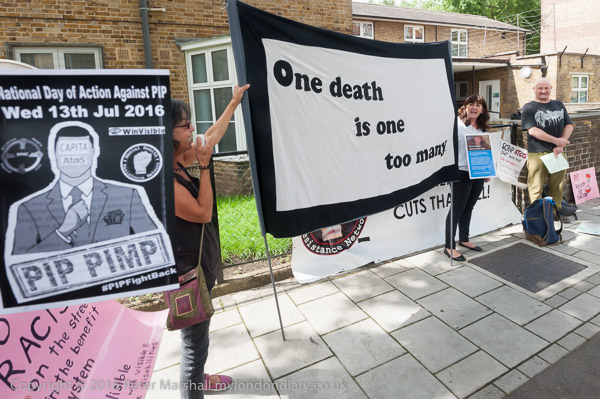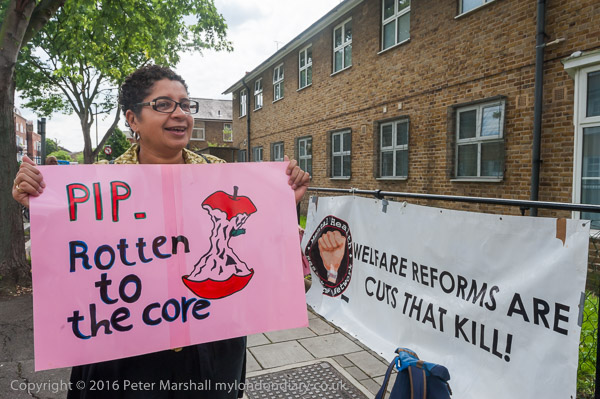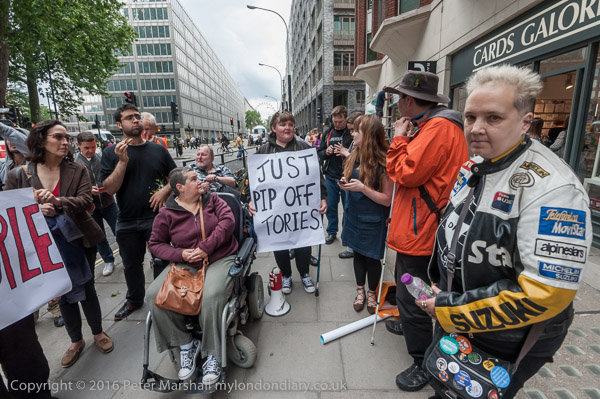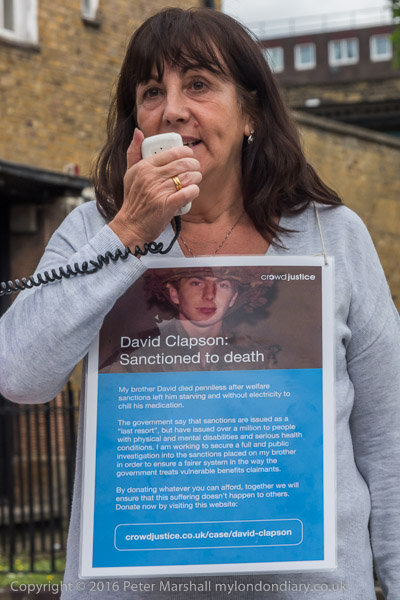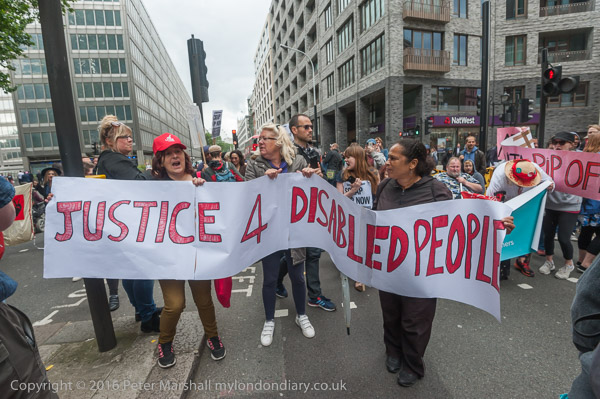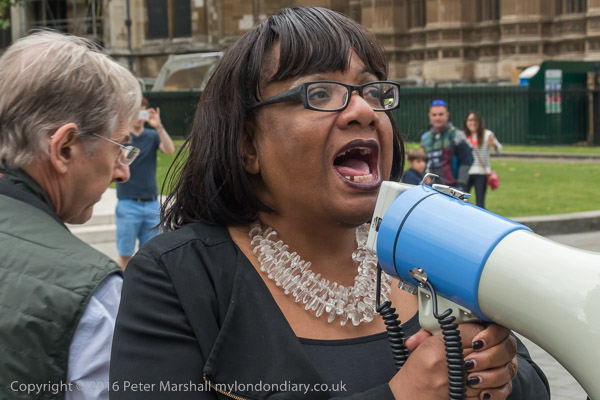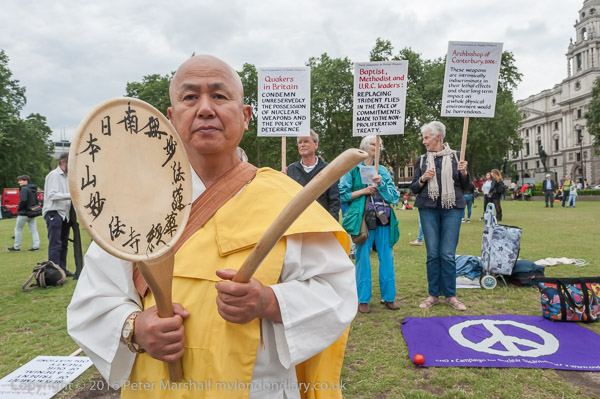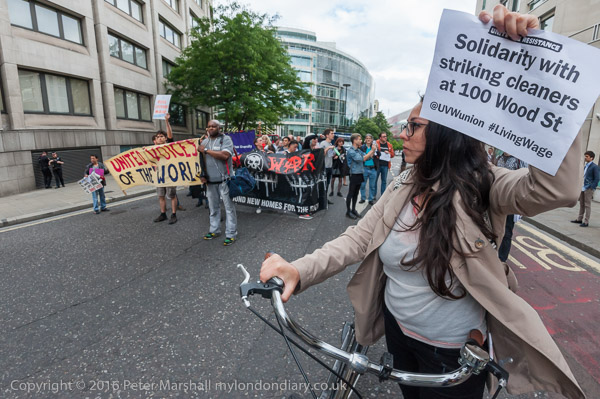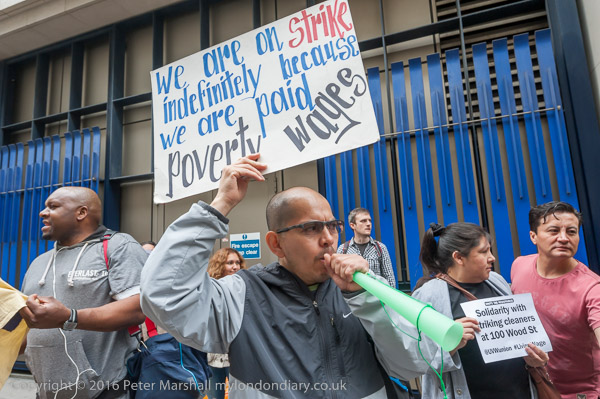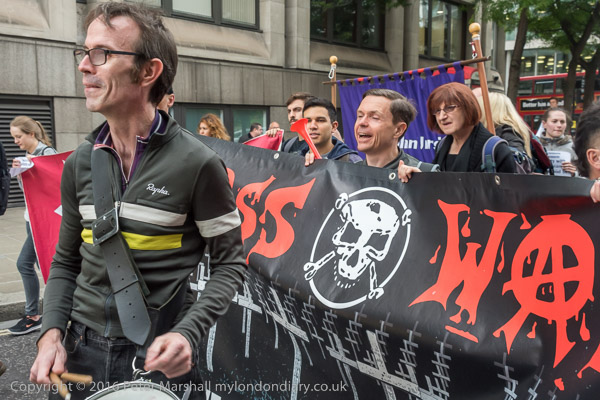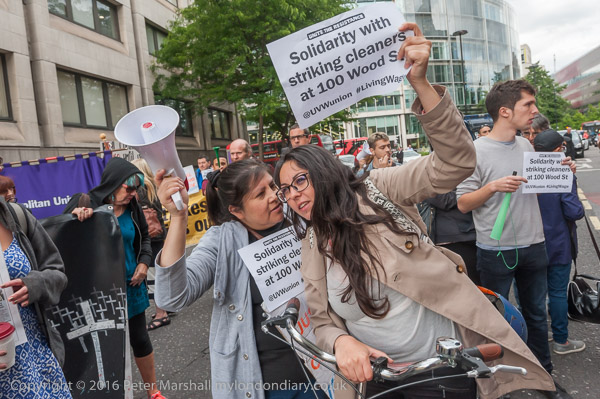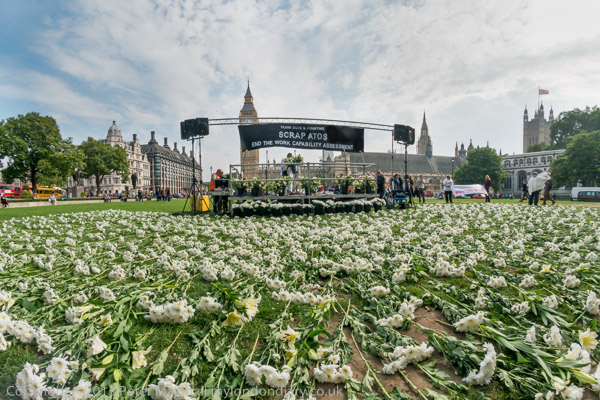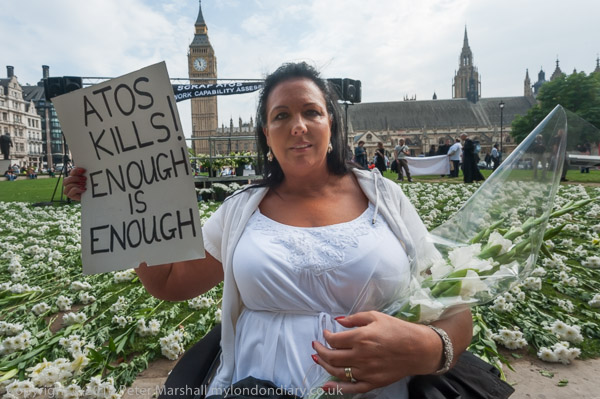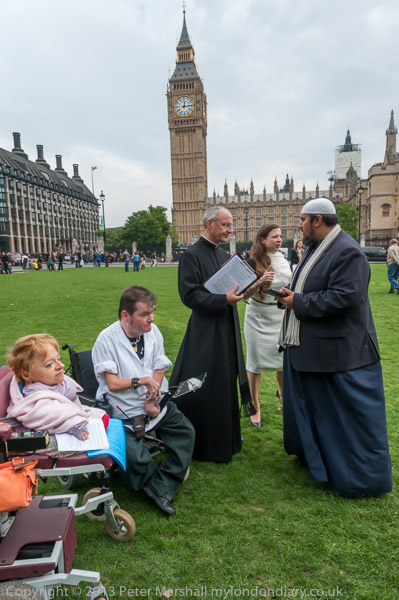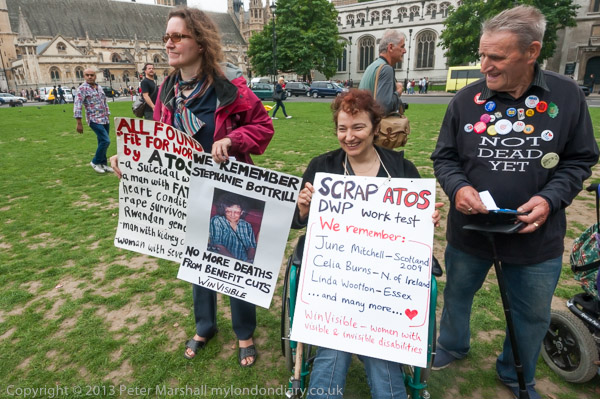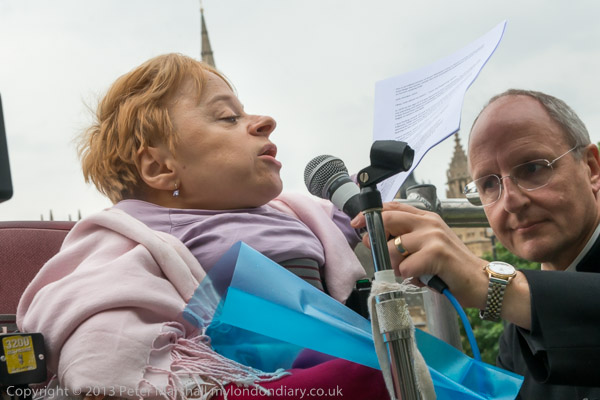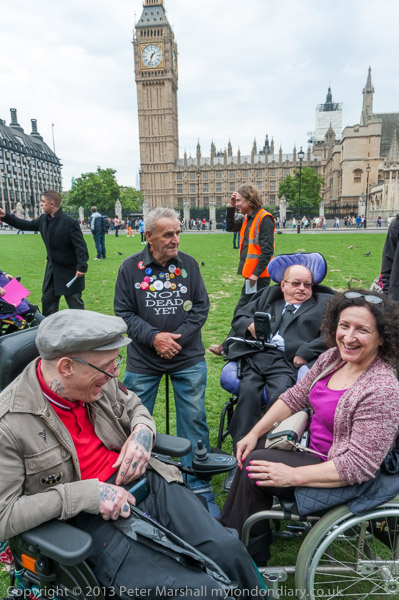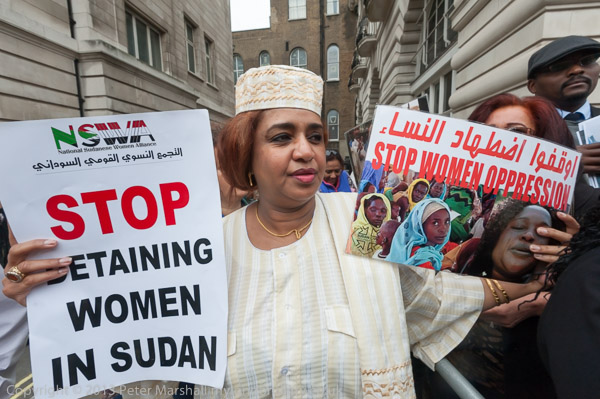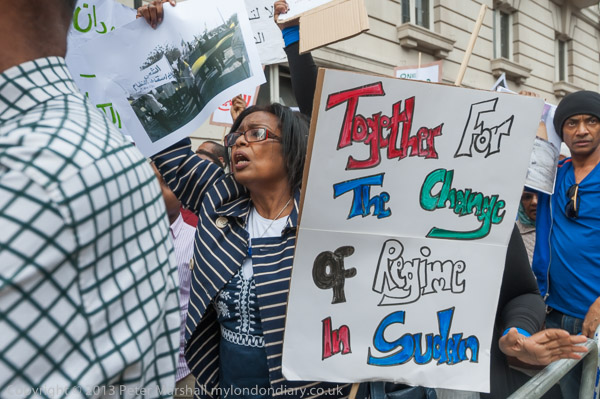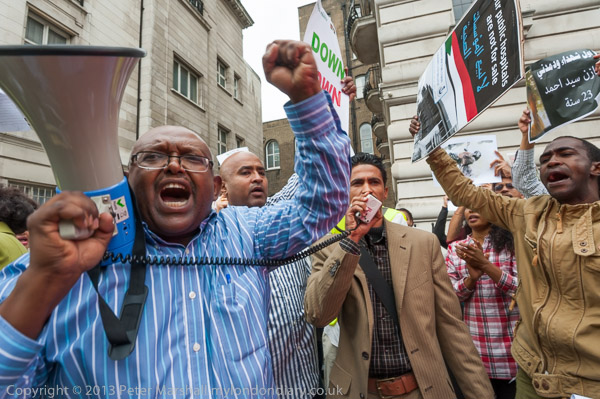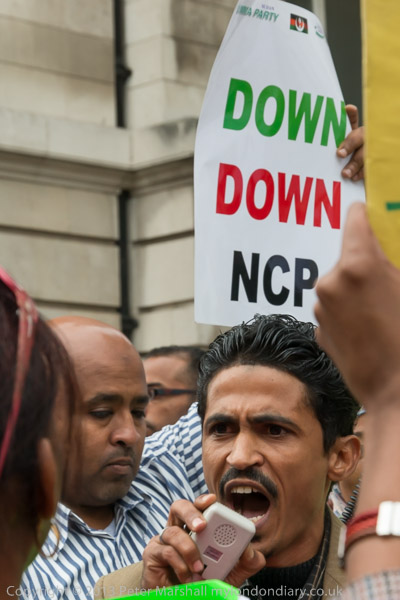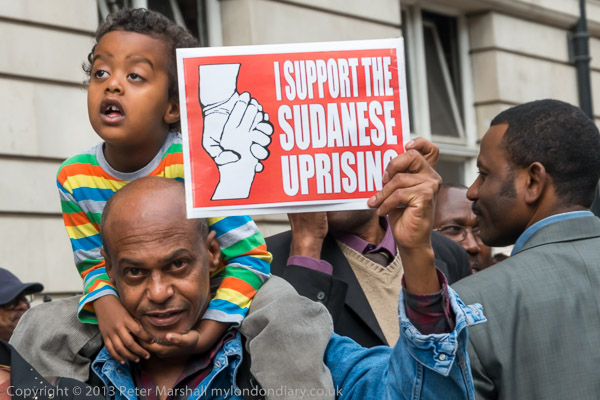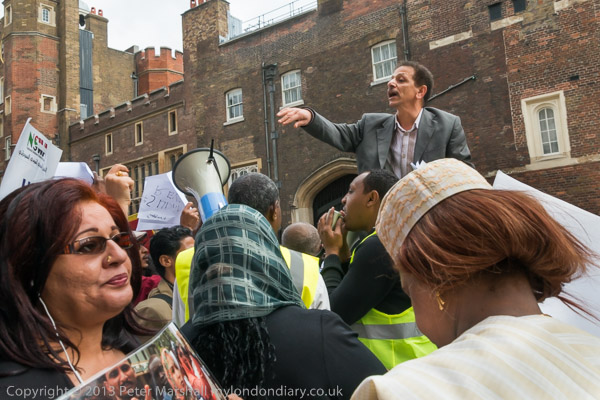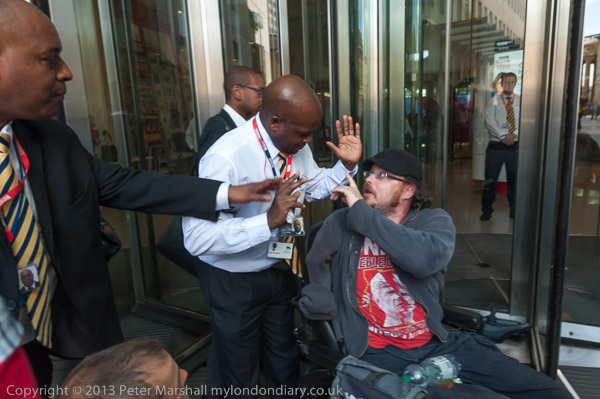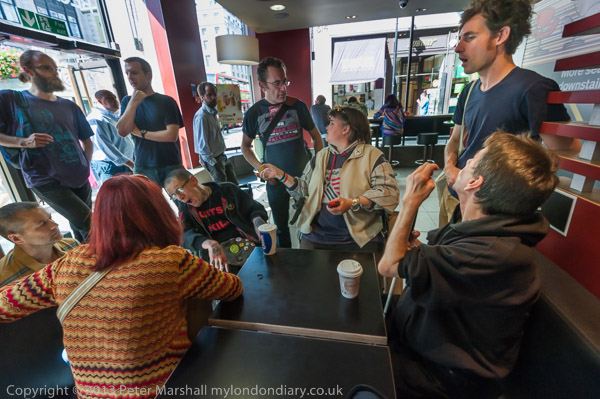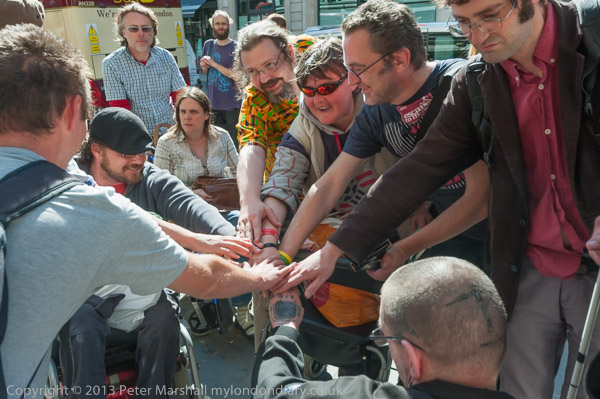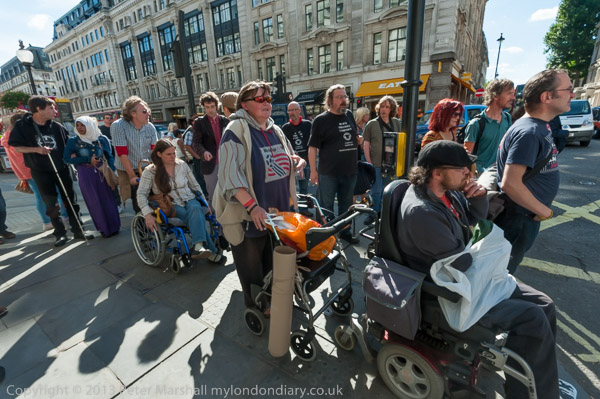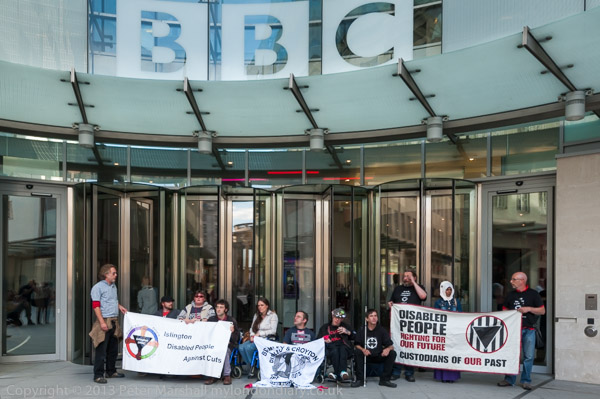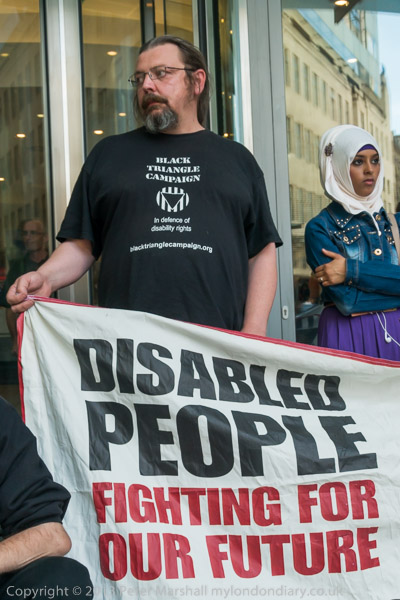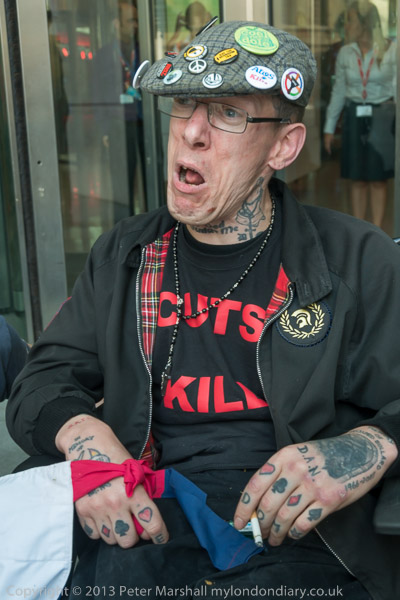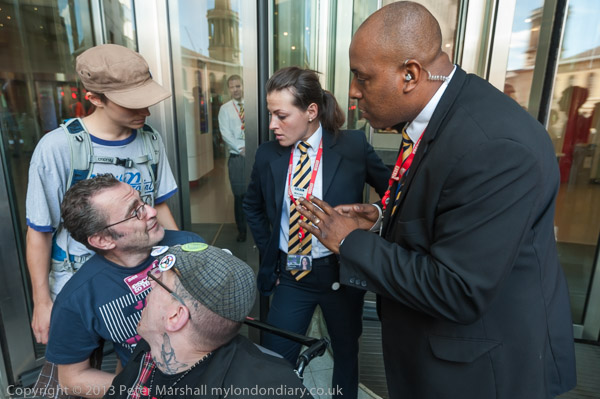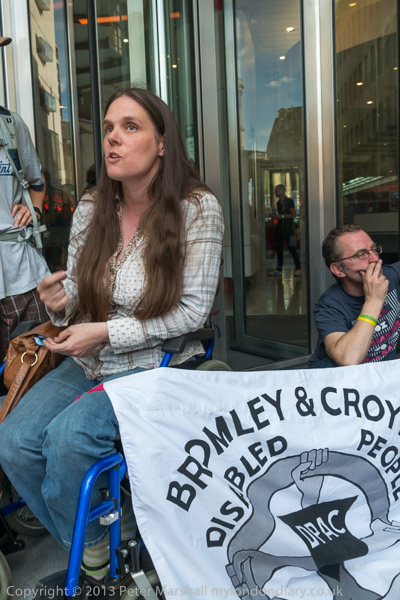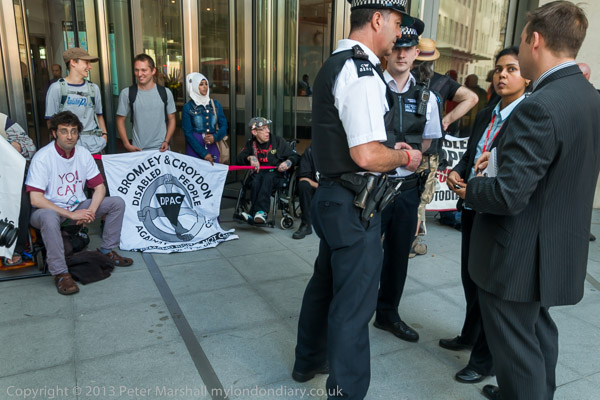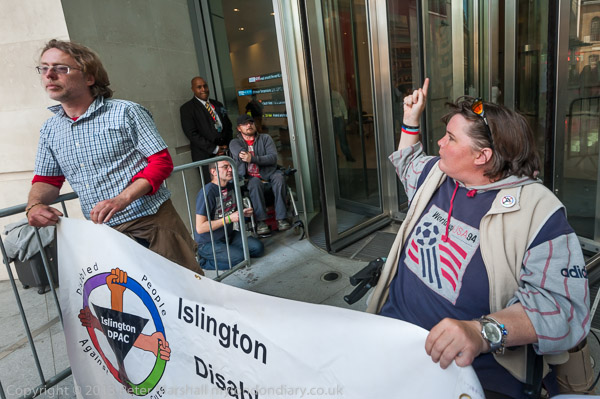Atos Protest & Camden Town: – Monday 24 January 2011

Disability benefits are now under attack by our Labour government, who have insisted they will implement the Tory plans to cut the amount paid in incapacity benefits by £3 billion by 2028. And the House of Lords economic affairs committee a few days ago published a report calling for a fundamental review of the benefits system to tackle the rising social and fiscal costs of disability benefits.
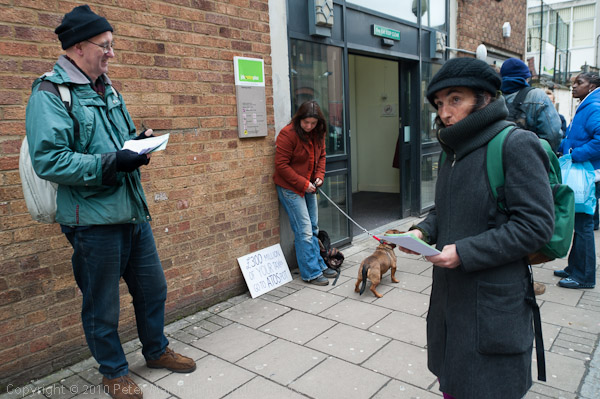
Also last week the High Court ruled that the previous government’s consultation on changing incapacity benefits was unlawful as “it presented the changes as a way of supporting disabled people into work but failed to make clear that 424,000 vulnerable claimants would see their benefits cut by £416 a month.”
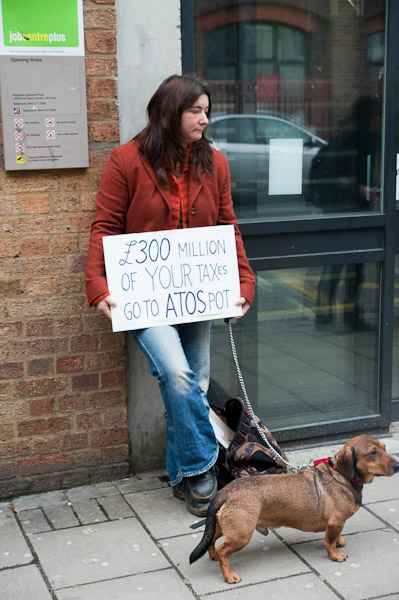
When the Tory coalition government came into power in 2010 it picked on the disabled who it thought would be an easy target for the cuts it was making to support the bankers. Protests such as this on Monday January 24th 2001 showed how wrong they were, with determined opposition to the unfairness of their cost-cutting reforms from disabled groups including Disabled People Against Cuts (DPAC) and the Black Triangle Campaign.
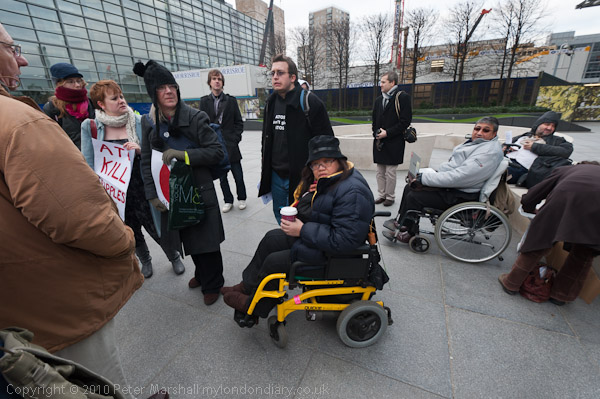
One part of the campaign by successive governments has been to give huge publicity and priority to benefit fraud, which according to the national Audit Office only amounts to 0.6% of the DWP budget and is a “drop in the ocean compared to the losses by tax evasion by the super-rich and the amounts lost by them and major corporations exploiting tax loopholes.“
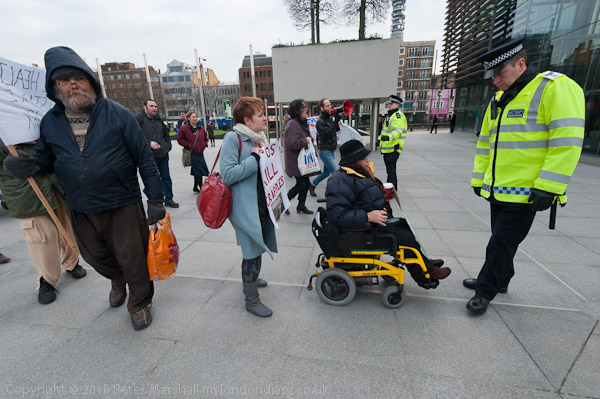
In 2011 a major source of unfairness in the system was the attempts to cut costs by the use of computer-based ability to work assessments carried out for the DWP by European IT company Atos. The interviews were administered by ‘healthcare professionals’, often poorly trained and lacking the qualifications and experience to assess many types of disability, particularly mental illness. Almost 70% of those assessed were moved onto the lower benefit rates of the Job Seekers Allowance with some being refused any benefits at all.
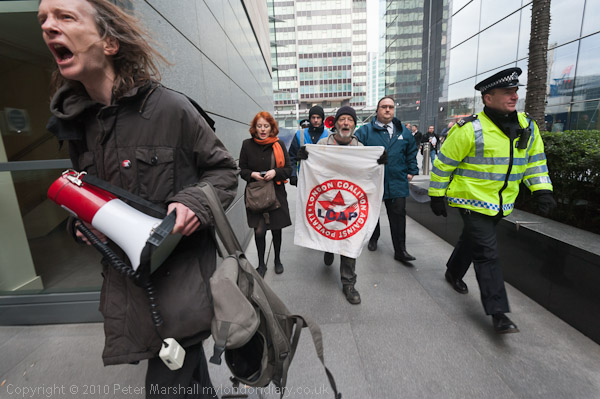
An independent review for the DWP made fundamental criticisms of the assessments, and around 40% of those who appealed the decisions eventually had their benefits restored to previous levels – but only after months of hardship, and often just in time for their next review when their benefits would again be axed. Part of the problem was the pressure applied on the assessors to meet targets in cutting benefits by the company so they could justify their costs to the DWP.

And there were plenty of true horror stories. People assessed fit for work who died within days of the assessments, those who committed suicide and some who starved to death. Benefit cuts really do kill.

Atos went on to gain other contracts from the DWP until September 2024 when the contract for Personal Independence Payment (PIP) and work capability assessment (WCA) were given to Serco. The DWP had acknowledged there were flaw in the Atos assessments but few believe that Serco will be any fairer.

Monday January 24th was a a National Day of Protest Against Benefit Cuts, with actions around the country, including protests in Leeds, Birmingham, Burnley, Hastings, Crawley, Chesterfield, Livingston, near Edinburgh (Atos’s Scotland HQ) and Glasgow. I began by photographing a local protest at Archway in North London before going on to a protest outside the London HQ of Atos Origin in Triton Square close to the Euston Road.

On My London Diary back in 2011 I wrote much more about the Atos tests and also about the details of the two protests. The protest in Triton Square was heavily policed but the organisers and those taking part, including Disabled People Against Cuts, WinVisible (Women with Visible and Invisible Disabilities) and London Coalition Against Poverty were intent on this being a peaceful protest.

Police have problems in dealing with disabled protesters. Many want to treat them carefully and their officers certainly realise that images of them being roughly handled would be terrible PR. But they were annoyed that the protesters decided to protest close to the actual Atos offices rather than in a pen they had set up a short distance away. And when one elderly man walked through the spread out police line he was roughly pushed to the ground and dragged away, though later he was allowed to rejoin the other hundred or so protesters.

The police then brought more barriers and erected them around the protesters, telling them they could only exit the fenced area when they were dispersing at the end of the protest. There seemed to be no real justification for this and they seemed simply to be a simply a matter of pique that the protesters had not followed their instructions.
More at Atos Tests Unfair to Disabled.
Camden Market – Camden High St/Chalk Farm Rd
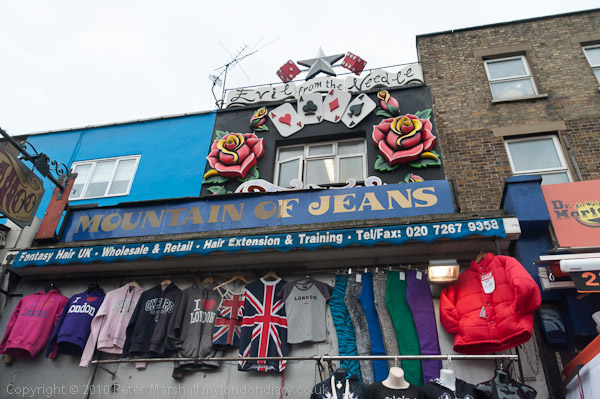
I had plenty of time to get from Archway to Triton Square and got off the bus in Camden Town for a walk and to make use of one of London’s rapidly disappearing public toilets in the middle of the busy road junction there (but I think closed a few years ago.)

I’d photographed around Camden High Street and Chalk Farm Road quite often in the 1990s, often on my way home from taking pictures elsewhere in North London, and walking from Camden Town station to Chalk Farm. Then the lemon sorbets from Marine Ices were the best in London if not the world. But that’s gone too now, and in January 2011 it wasn’t the weather for it.

Back in the 1990s the streets would have been pretty empty except at weekends, but by 2011 there were plenty of tourists wandering around even on a cold Monday in January, though business was fairly slack. But mainly I pointed my camera up to the decorations above the shops
More pictures: Camden Market.
Flickr – Facebook – My London Diary – Hull Photos – Lea Valley – Paris
London’s Industrial Heritage – London Photos
All photographs on this page are copyright © Peter Marshall.
Contact me to buy prints or licence to reproduce.
